
“You’ll be the death of me yet, Mr. Barlow.”

Synopsis:
A penniless British poet (Robert Morse) arrives in Los Angeles to visit his uncle (John Gielgud), who works as an artist for a movie studio run by a young producer (Roddy McDowell) and his junior executive (Jonathan Winters). When Gielgud dies unexpectedly, his British compatriot (Robert Morley) arranges to have him buried at Whispering Glades, a mega-funeral home run by Winters’ brother (also played by Winters), where Morse romances a young beautician (Anjanette Comer) being pursued by a middle-aged mortician named Mr. Joyboy (Rod Steiger). |
Genres, Themes, Actors, and Directors: - Black Comedy
- Dana Andrews Films
- Death and Dying
- James Coburn Films
- John Gielgud Films
- Love Triangle
- Robert Morley Films
- Rod Steiger Films
- Roddy McDowell Films
- Tab Hunter Films
- Tony Richardson Films
Response to Peary’s Review:
Tony Richardson’s adaptation of Evelyn Waugh’s 1948 novel — co-scripted by Christopher Isherwood and Terry Southern — is beautifully shot by DP Haskell Wexler, headily surreal (“Let me explain the dream to you — this entire place is a dream.”), and has “a scene to offend everyone”, but (as Peary notes) features “plodding” direction and fails to pack a satisfying overall punch. Part of the problem lies in failure to connect with Morse, who lacks charisma and doesn’t inspire much investment. There are also far too many cameos and sub-plots, including several not present in Waugh’s original novel (i.e., the final outrageous twist about Winters’ nefarious plans for the corpses in his care). Scenes of excess and grotesque greed — such as “Comer’s visit with embalmer Joyboy’s (Rod Steiger) grossly fat mother [Ayllene Gibbons], who’s pigging out on food and salivating over food commercials on television; a woman (Margaret Leighton) battling her husband (Milton Berle) over giving up their beloved dead dog; and a gravelly-voiced huckster (Lionel Stander) pretending to be a sage guru-by-mail — seem merely calculated for shock. By the time Dana Andrews shows up in a small role as a general, the story has twisted too many times to maintain interest. Ultimately, the excesses of both Hollywood and funeral preparations in California have been more effectively portrayed in other cinematic efforts — see, for example, John Schlesinger’s The Day of the Locust (1975) and Errol Morris’s Gates of Heaven (1978). P.S. As Peary notes, “one of the best scenes has Morse visiting Comer’s unsteady house-on-stilts, which is built in a slide area” (see still below). Redeeming Qualities and Moments: - Haskell Wexler’s cinematography

 - Some effectively satirical scenarios and sets
 - Rod Steiger as Mr. Joyboy
 - Liberace’s too-short cameo role: “Rayon chafes, you know. Personally, I find it quite abrasive.”

Must See?
No, though it’s certainly worth a one-time look. Links: |


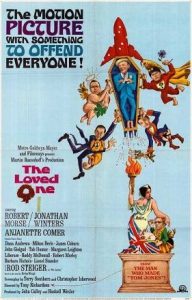
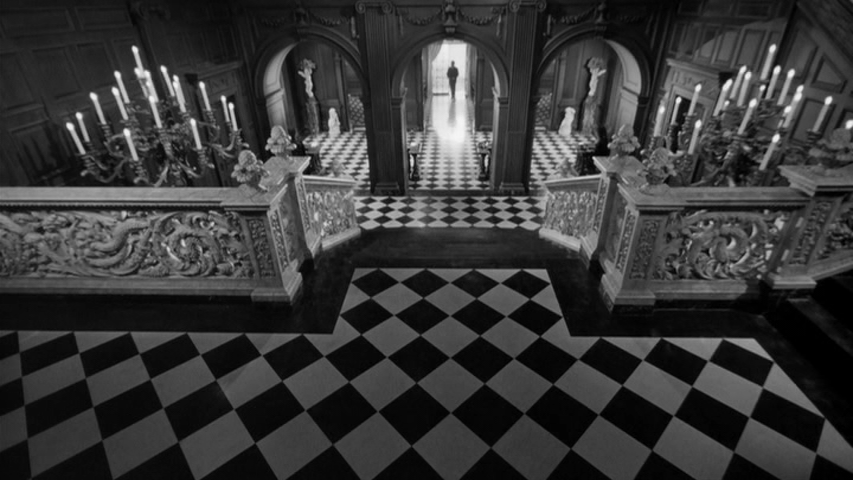
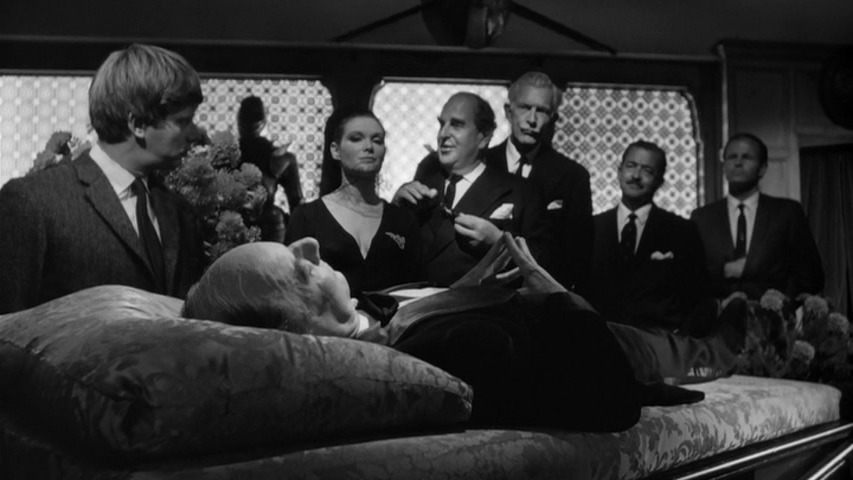

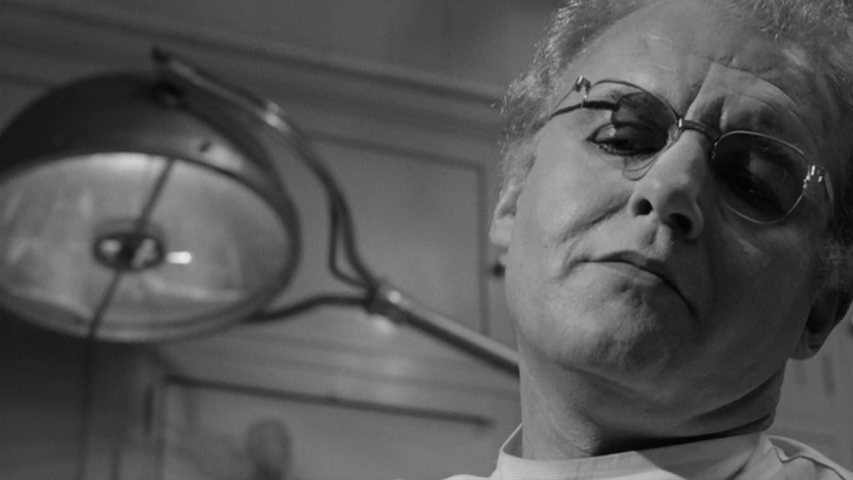
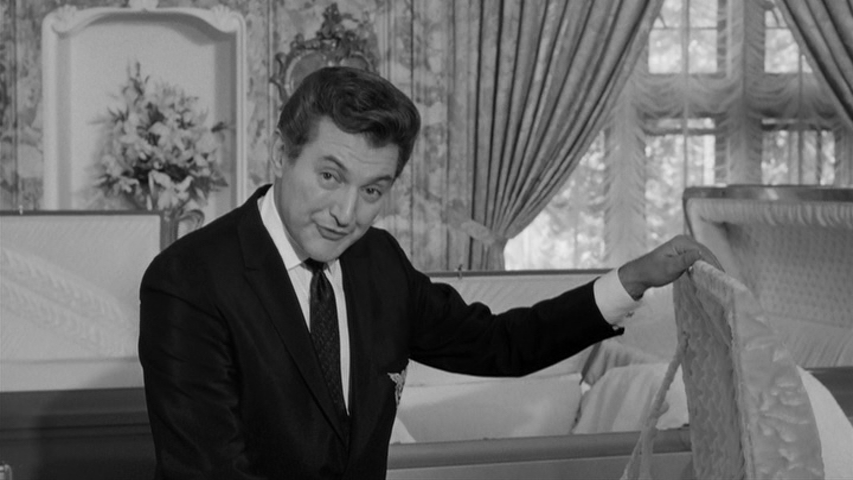
No comments:
Post a Comment